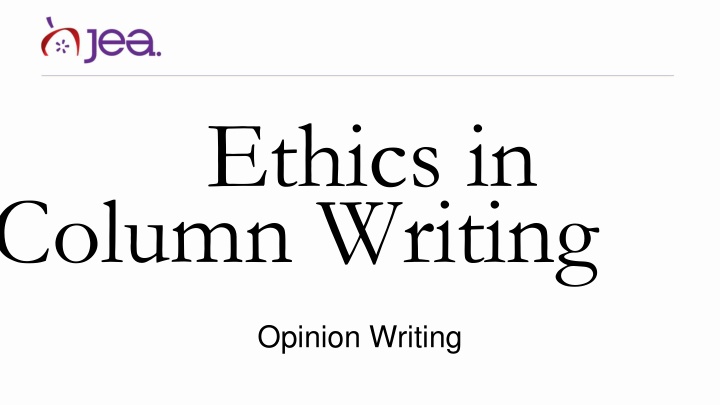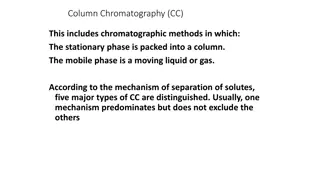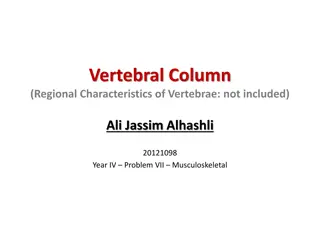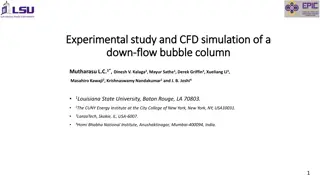
Ethical Guidelines for Opinion Writing in Journalism
Learn about the importance of ethics in opinion writing, based on the SPJ Code of Ethics. Discover how to seek the truth, minimize harm, act independently, and be accountable in your writing to maintain journalistic integrity.
Download Presentation

Please find below an Image/Link to download the presentation.
The content on the website is provided AS IS for your information and personal use only. It may not be sold, licensed, or shared on other websites without obtaining consent from the author. If you encounter any issues during the download, it is possible that the publisher has removed the file from their server.
You are allowed to download the files provided on this website for personal or commercial use, subject to the condition that they are used lawfully. All files are the property of their respective owners.
The content on the website is provided AS IS for your information and personal use only. It may not be sold, licensed, or shared on other websites without obtaining consent from the author.
E N D
Presentation Transcript
Ethics in Column Writing Opinion Writing
The SPJ Code of Ethics The Society of Professional Journalists bases its ethics code on four principles: Seek the truth and report It. Minimize harm. Act independently. Be accountable.
Opinion writing = journalism Even though opinion writing looks different from news or feature writing, and its purpose is to persuade more than just to inform, it must adhere to the same ethical considerations.
Seek the truth and report It Research your topic as thoroughly as you would a news story. Be aware of biases sources may have. Do not exaggerate or leave out part of the story to make your point.
Minimize harm Consider the effects your story may have. Who will it affect? How? Avoid using stereotypes or making assumptions, and be aware of your own biases. Respect privacy the same way you would in a news story.
Act independently Be aware of conflicts of interest. Don t let pressure from friends, teachers or groups determine what you write about (or what you are afraid to write about).
Be accountable Have staff members, editors and adviser read your work and consider their feedback. Seek out people with differing opinions to read your work before it is published. If there are problems after publication, look for ways to resolve the situation and set policies to avoid them in the future.






















